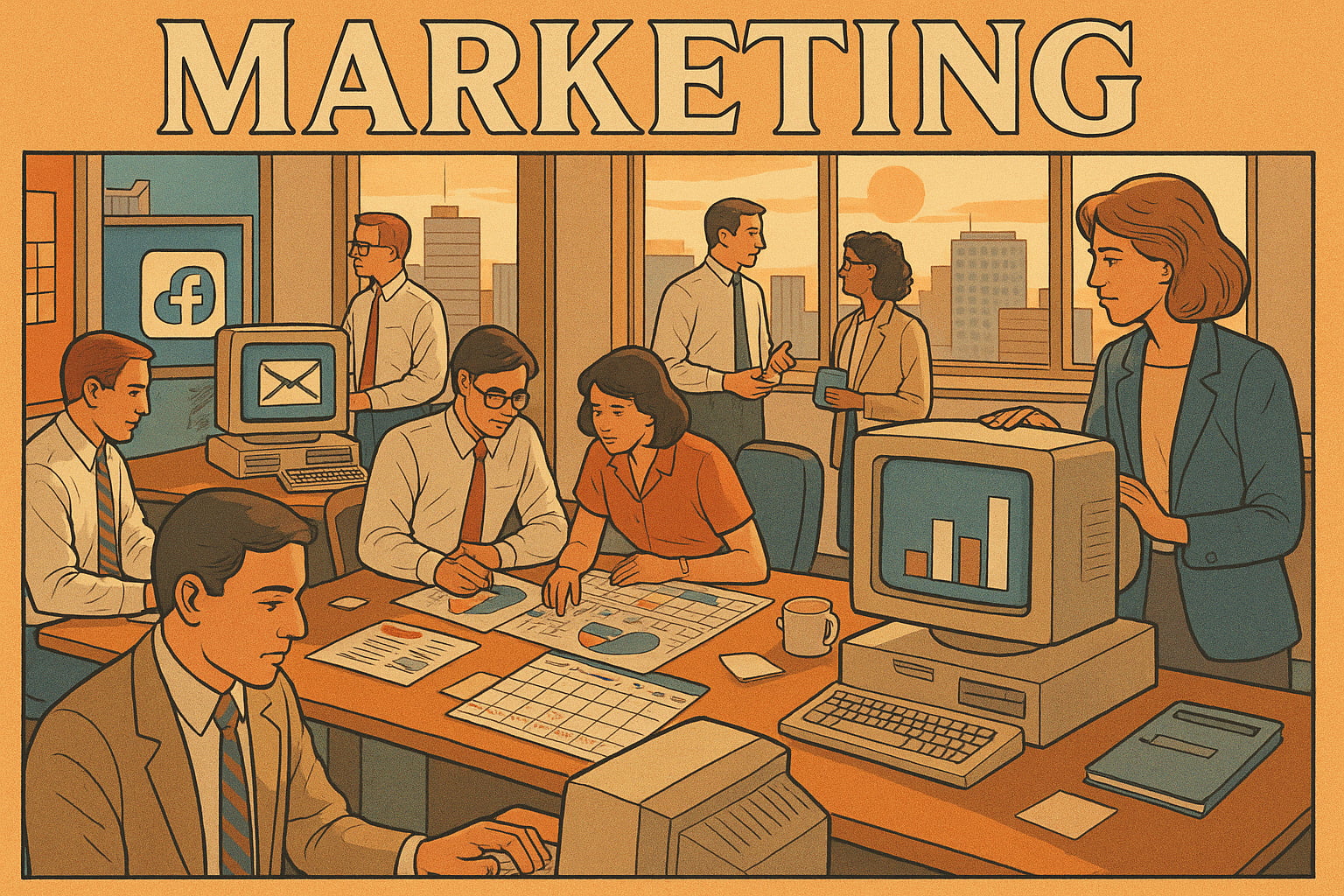Social Media and Email Marketing | Blaze AI



Why Use Blaze's Social Media and Email Marketing Platform
Modern marketing demands efficiency without sacrificing effectiveness. For busy professionals managing growth-stage companies, agencies, or marketing departments, the choice between social media and email marketing often feels like an either/or decision.
Blaze eliminates this false dichotomy by unifying both channels into a single, streamlined platform that amplifies your marketing impact while reducing operational overhead.
Benefits of Conducting Social Media and Email Marketing
Integrated social media and email marketing delivers measurable advantages for resource-constrained teams:
Integrated social media content creation and email marketing delivers measurable advantages for resource-constrained teams.
Operational Efficiency: Managing multiple marketing channels traditionally requires switching between 4-6 different tools, leading to 15-20 hours weekly in platform management alone. A unified platform cuts this time by 60-70%, freeing your team to focus on strategy rather than tool juggling.
Scaled Effort Without Scaled Resources: Automation and templating capabilities allow a single marketer to manage campaigns that previously required a 3-4 person team.
Content repurposing across channels means one piece of core content can generate 10-15 touchpoints across email and social platforms.
Message Synchronization: Disconnected tools create disconnected messaging. When your email says one thing and your social posts say another, brand confusion follows.
Unified campaign management ensures every touchpoint reinforces your core message, increasing conversion rates by maintaining consistent narrative threads across customer interactions.
Data-Driven Personalization: Combined analytics from both channels create richer customer profiles. When email engagement data informs social targeting (and vice versa), personalization becomes genuinely meaningful rather than superficial.
This cross-channel intelligence typically increases engagement rates by 25-40% compared to siloed approaches.
Choosing the Right Channel: Social Media vs. Email Marketing
Understanding each channel's strengths enables strategic deployment rather than scattered efforts:
Audience Targeting
Email Marketing delivers precision targeting to opted-in audiences who've explicitly expressed interest. You control the entire list, segment with granular detail, and reach inboxes directly without algorithmic interference. Target by behavior, purchase history, engagement levels, or custom attributes.
Social media marketing offers broader reach with interest-based targeting. While you can't guarantee who sees your content, you can tap into lookalike audiences, leverage platform-specific demographics, and reach users in discovery mode who aren't yet aware of your brand.
Messaging Dynamics
Email Marketing supports long-form content, detailed product explanations, and multi-step nurture sequences. Messages persist in inboxes until acted upon, creating evergreen touchpoints. Average email contains 150-200 words with space for comprehensive calls-to-action.
Social Media demands brevity and visual appeal. Messages are ephemeral, requiring consistent posting to maintain visibility. Content must capture attention in 1-3 seconds, with most effective posts containing under 50 words. Platform-specific formats (Stories, Reels, carousels) dictate content structure.
Personalization Capabilities
Email Marketing enables deep personalization through merge tags, dynamic content blocks, and behavior-triggered sequences. Learn more about AI email personalization and how automation enhances customer relevance.
Social Media personalization occurs through targeted ad delivery and algorithmic content distribution. While you can't personalize individual posts, you can create audience-specific campaigns and leverage retargeting for previous website visitors or email subscribers.
Engagement Patterns
Email Marketing generates private, one-to-one engagement. Click-through rates average 2-3% for well-targeted campaigns, with engaged subscribers taking specific actions like purchases or content downloads. Engagement is measurable but not publicly visible.
Social Media creates public, one-to-many engagement. Comments, shares, and reactions build social proof while extending organic reach. Viral potential exists but requires content that resonates emotionally or provides exceptional value. Engagement rates vary wildly by platform (0.5-5% typically).
Social Media Use Cases
As AI continues transforming digital communication, AI in email marketing enables smarter segmentation and predictive personalization across campaigns.
High Growth Founders
Founders leverage social media for thought leadership and company storytelling. LinkedIn becomes the primary platform for B2B founders, sharing insights from the scaling journey, celebrating team wins, and commenting on industry trends.
This personal brand building directly impacts company valuation—founders with strong social presence raise funding 23% faster on average.
Twitter/X serves as a real-time engagement platform for product launches, feature announcements, and community building. Successful founders use social to crowdsource feedback, turning followers into an extended product development team.
Marketing Planners/Managers
Marketing managers orchestrate multi-platform campaigns that align with broader marketing calendars. Social media becomes the testing ground for messaging that later appears in paid campaigns.
A/B testing post formats, imagery, and copy on organic social costs nothing while providing data for larger investments.
Cross-functional collaboration improves when marketing managers use social media as a content distribution hub. Sales teams amplify company posts, customer success shares case studies, and product teams preview upcoming features—all coordinated through centralized planning.
Digital Agency Owners
Agencies use social media as both a service offering and lead generation tool. Showcasing client wins through before/after case studies, sharing industry insights, and demonstrating expertise through educational content builds pipeline while proving capability.
Platform-specific expertise becomes a differentiator. Agencies specializing in TikTok for B2C brands or LinkedIn for B2B SaaS position themselves as channel experts rather than generalists, commanding premium rates for specialized knowledge.
Content/Community Managers
Community managers transform social media from broadcast channel to conversation platform. They respond to comments within 1-2 hours, moderate user-generated content, and facilitate discussions that strengthen brand affinity.
Active community management increases customer lifetime value by 20-30% through improved retention.
Content scheduling and batch creation maximize efficiency. Community managers queue weeks of content during focused creation sessions, then shift attention to real-time engagement and community nurturing.
Content scheduling and batch creation maximize efficiency. Community managers queue weeks of content during focused creation sessions, then shift attention to real-time engagement and promoting on social media
Email Marketing Use Cases
High Growth Founders
Founders use email for investor updates, maintaining stakeholder relationships without time-intensive meetings. Monthly updates showcasing metrics, milestones, and needs keep investors engaged while potentially surfacing valuable introductions or advice.
Direct customer communication through founder emails converts 3-5x better than standard marketing messages. Personal notes about company vision, product philosophy, or industry perspectives build emotional connection that transcends transactional relationships.
Marketing Planners/Managers
Marketing managers deploy sophisticated nurture sequences that guide prospects through awareness to purchase. Multi-touch campaigns combining educational content, social proof, and time-sensitive offers increase conversion rates while reducing sales cycle length.
Segmentation strategies based on engagement, industry, or company size ensure relevant messaging. For small teams, email marketing for small businesses provides scalable automation without losing personalization.
Digital Agency Owners
Agencies leverage email for client retention and upselling. Regular performance reports demonstrating ROI, strategic recommendations for growth, and proactive communication reduce churn while identifying expansion opportunities.
New business development through email nurture converts prospects who aren't ready to buy immediately. Agencies maintaining 6-12 month nurture sequences capture 25-30% of initially unresponsive leads.
Content/Community Managers
Newsletter curation becomes a value-creation exercise. Community managers aggregate best discussions, member spotlights, and exclusive content into weekly digests that members anticipate rather than tolerate.
Automated onboarding sequences welcome new community members, introduce community norms, and highlight valuable resources. Proper onboarding increases community participation rates by 40-50% in the first 30 days.
Wrapping Up
Blaze's integrated platform creates compounding returns by eliminating the artificial boundaries between social media and email marketing. When social engagement data informs email segmentation, and email subscriber behavior guides social targeting, marketing effectiveness doesn't just add—it multiplies.
The true value emerges from workflow consolidation. Instead of logging into multiple platforms, downloading separate reports, and manually connecting insights, teams operate from a unified command center.
This integration saves 10-15 hours weekly while improving campaign performance through comprehensive analytics and cross-channel optimization.
Regardless of your role or use case, success comes from treating social media and email as complementary forces rather than competing channels. Social media builds awareness and community; email nurtures and converts.
Social provides broad reach; email delivers targeted depth. Together, they create a marketing ecosystem that's both resilient and responsive.
Start with your strengths—if you excel at content creation, begin with social and add email sequences. If data and automation are your forte, build email foundations then expand to social.
Blaze accommodates either approach while ensuring eventual integration delivers maximum impact.
The modern marketing landscape doesn't reward channel specialists who ignore integration opportunities. It rewards pragmatists who leverage every available tool to reach customers where they are, when they're ready, with messages that resonate.
Blaze makes this orchestration possible without the complexity that traditionally accompanied multi-channel marketing.


.svg)